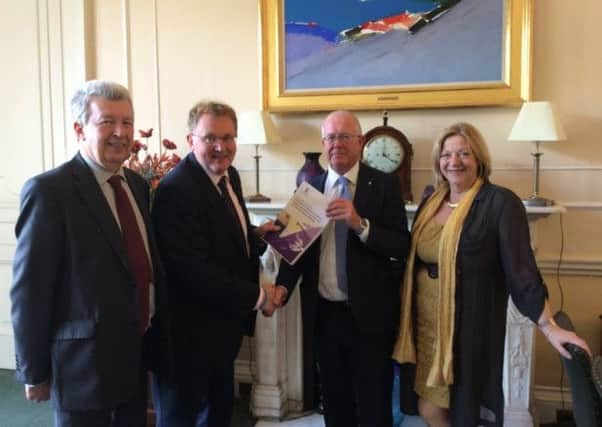Devolution committee calls on MSPs to back Scotland Bill in vote


The Devolution Committee has been scrutinising details of the legislation and the recently-agreed five-year funding deal which accompanies it.
The Parliament will vote on whether to give legislative consent to the Bill - which provides a raft of new powers for Holyrood - on Wednesday.
Advertisement
Hide AdAdvertisement
Hide AdA vote in favour will allow the Bill to continue its passage through Westminster.
Committee convener Bruce Crawford said: “Our committee’s unanimous recommendation that legislative consent be given to the Scotland Bill is a significant milestone in a remarkable political process that originates from the cross-party Smith Commission.
“There are still some areas where we feel the Scotland Bill continues to fall short of the spirit and substance of Smith, notably in relation to the devolution of employment programmes and the future operation of the legislative consent provision.
“Nevertheless, the Bill has been improved during its passage through our detailed scrutiny and we welcome the fact that the Secretary of State for Scotland listened to our arguments - most notably on enshrining in the Bill the need for a referendum of the Scottish people on any proposal ever to abolish the Scottish Parliament.”
Agreement between the UK and Scottish governments on the funding deal to accompany the legislation was only reached in February, with the committee complaining the delays had had a “detrimental impact” on the level of scrutiny it has been able to undertake.
“Nevertheless, on the basis of the information provided to date by the two governments, the committee welcomes the agreed fiscal framework and we are prepared to endorse its key provisions,” its report said.
It went on to highlight its disappointment that all key documents relating to the fiscal framework deal had not been published after the move was blocked by the Treasury.
The committee was also concerned about the lack of detail in the public domain on what happens at the end of the five-year deal if both governments do not agree on the next steps.
Advertisement
Hide AdAdvertisement
Hide Ad“Accordingly, we recommend that all aspects of the future intergovernmental discussions and agreements on the tax and welfare powers as set out in the fiscal framework are covered under the auspices of the Written Agreement set to be concluded between the committee and the Scottish Government relating to parliamentary oversight,” its report said.
“No one party to the negotiations should be able to veto what the Scottish Government decides to share with the Scottish Parliament, to whom it is accountable.”
